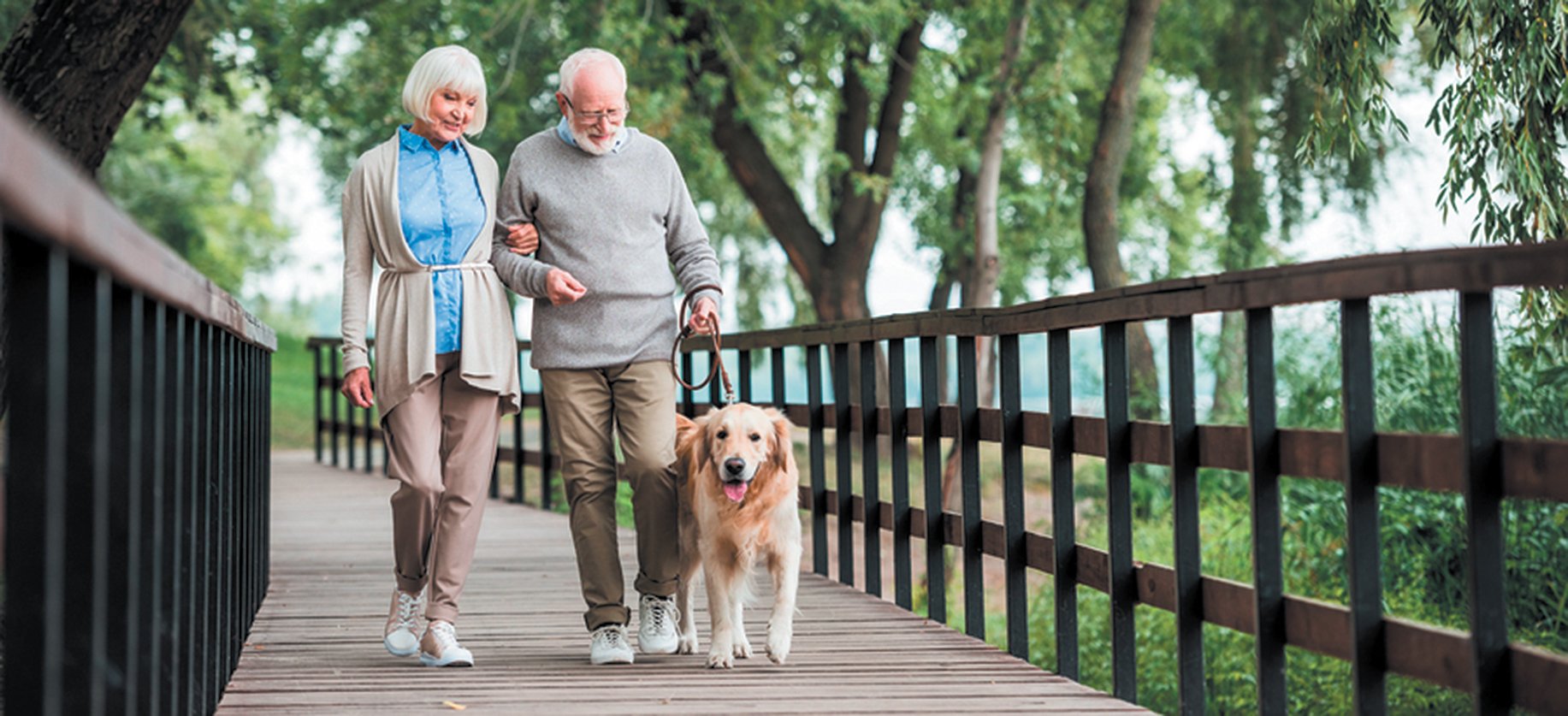
© gualtiero boffi | Bigstock
You’re 68 and have lost your canine pal and want to adopt a new one. But the average life expectancy in the U.S. is just under 79 — you’ve got 11 years left, if you go by averages. Yet the average life expectancy of a dog is 10 to 13 years. Your pet may outlast you.
Just as important, maybe you anticipate losing steam over the next decade to the point that you won’t be able to give a dog what he needs in terms of daily walks and other forms of active care. Should you forego another opportunity for a canine bond?
Absolutely not!
Age really is just a number
“Generally, we encourage older folks to adopt pets because keeping one is a wonderful experience at any age,” says Rob Halpin, director of public relations at MSPCA-Angell, a Boston-based humane society, shelter, animal adoption agency, and animal hospital all under the same institutional umbrella. “Older folks, in particular, depending on their circumstances, may be especially well suited to keeping pets because they are often retired and just have more time to spend with a pet, which is enriching for both animal and person,” Mr. Halpin adds.
Rather than considering just your age, which is a number with no context, Mr. Halpin recommends going by the motto “Goodness of Fit.”
“Just as some younger people aren’t aways active or looking for an active dog and have a lifestyle that might dictate a more relaxed and sedentary pet, some older folks are fabulously fit and active and may want a dog who can keep up with them on hikes or runs,” he says. Indeed, there are plenty of people who are well into their 70s, and even their 80s and sometimes older, who go white water rafting and engage in all kinds of other vigorous physical activity that requires much more stamina than taking care of a dog.
And if you do feel a creeping frailty, you can always go with a dog that doesn’t require much exercise: a toy breed, perhaps, or a greyhound, who while large and fast, is happy to lie around much of the day just keeping you company and then amble along for slow walks. Then, too, you can choose a dog that is no longer a puppy and doesn’t have excess energy to burn. He will be happier to just walk at your side rather than drag you along because everything in the world is so exciting for him.
Financial considerations
Along with the physical activity requirements of owning a dog, you’ll want to consider the financial ones. Some people of retirement age are sitting pretty money-wise, with healthy pensions, social security checks coming in, and a tidy nest egg that they accumulated through the years, so the costs of owning a dog won’t weigh on them. For others, income diminishes considerably during retirement years. People of more limited means may want to consider a smaller dog. The ASPCA estimates that the minimum annual cost of taking care of a small dog versus a large one could differ by $300 a year. That comes to a $25 monthly difference that could be a deal breaker for someone whose budget simply can’t meet the added expense.
Once you factor in your financial situation, lifestyle, and overall health (older people are more diverse in terms of their health status than any other age group), you’re in an excellent position to make the right choice. Let the belly rubs, snuggle-ups, and overall cross-species companionship continue!
Before You Go
While caring for a dog is a good idea at any age as long as you’re physically able, you should have a plan in place for the possibility that your dog could outlive you. This is important for people at all stages of life, not just older men and women. No one can predict the future, including the immediate future. Take these steps:
-Talk to a responsible friend or relative who agrees to adopt your pet in the event that you can no longer take care of him either because of incapacitation or death.
-Carry an “alert card” in your wallet that lists the name and phone number of the person who will step in to care for your dog.
-Include your pet in your will. Just as you would include legal documentation of your wishes for who should raise your child in your absence and with what funds, include such information for your dog. Making it official means your pet will end up in the right hands.





